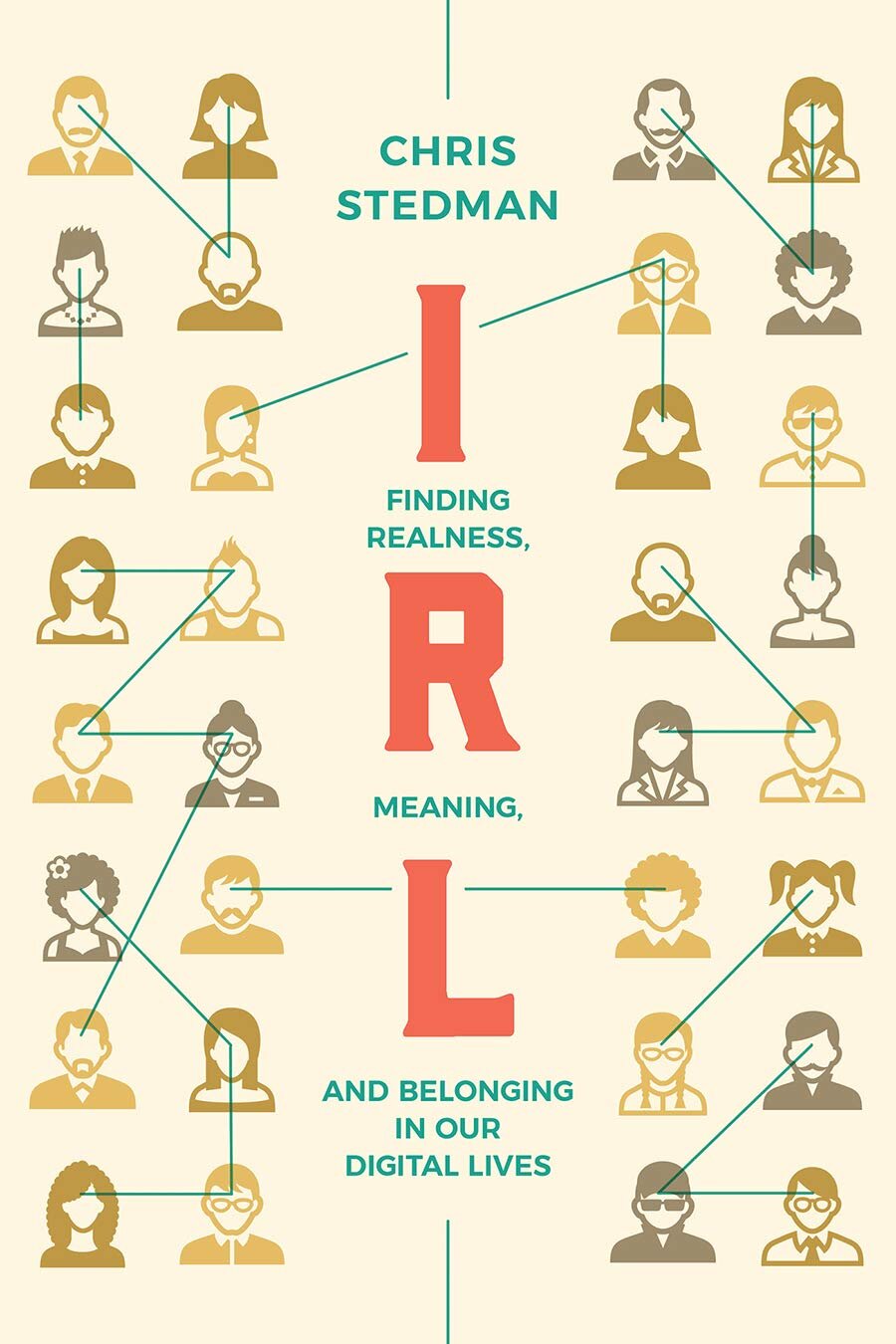IRL by Chris Stedman
/IRL: Finding Realness, Meaning, and Belonging in Our Digital Lives
By Chris Stedman
Broadleaf Books, 2020
The title of Chris Stedman’s fascinating new book IRL: Finding Realness, Meaning, and Belonging in Our Digital Lives stands, of course, for “in real life” and was originally created to signify the allegedly yawning gap between the reality we all experience walking around every day and the reality we experience online.
It’s a gap we’re all familiar with; not only do people assume alternate identities and explicitly lie in their online representations of themselves, but also - far more commonly - people also lie implicitly, using social media to shape and curate the reality of their lives into gaudy parades of perfect, smiling faces beaming in front of exotic locales and expensive meals. Add in trolls, bots, and sock puppets, and you have a conception of the Internet as a fetid swamp of deception and deceit.
And yet, in 2020 especially, it’s where we all live a very large chunk of our time. Thanks to a world-wide pandemic, jobs, reunions, interviews, birthdays, book clubs, classrooms, and dozens of other communal things now happen in Zoom chatrooms and through Skype calls rather than in person - our online and “irl” worlds have almost entirely merged, mainly because a rampaging virus has drastically curtailed the “irl” worlds of virtually every responsible, conscientious person on Earth. When it comes to grappling with the implications of that, there’s never been a better time for a book like IRL.
It’s a book that deals with elemental urges in plain, direct language. Stedman writes that human beings, whether online or not, are seeking the same things: “we’re deciding who to be intimate with and who to keep at arm’s length; we’re charting and transcribing our lives as a means of remembering and understanding; we’re figuring out who we are and broadcasting who we’d like to be; we are trying, perhaps more than anything else, to find a place within a community that accepts us.” That humans now do so many of these things online in addition to (or instead of) in person, Stedman writes, means it’s imperative that we find ways “to be real online.”
There are dozens of vivid metaphors in the course of this book, but the most visceral of them involves the author dealing with, of all things, scabies. Anybody who’s ever experienced scabies will shudder at the very mention of it. Stedman’s descriptions are immediately effective - and the parallel is obvious, as he makes clear:
The itch-scratch cycle just intensifies your misery because once you scratch, your body releases a neuropeptide that makes you itch even more … I thought back to pacing outside my apartment just days after my diagnosis, refreshing my Twitter and Instagram feeds, desperate for something to distract me from my itchy misery. And I thought about every time I’ve posted something online and watched the notifications roll in, only to feel an even stronger hunger for more engagement. It can seem impossible to satiate our digital itch sometimes, like each scratch just fuels it.
At heart, IRL is a call to break this cycle through what may seem the oddest means imaginable: genuineness. “It starts with letting ourselves be vulnerable and attached to the world around us instead of treating our digital lives as spaces where we can optimize and design ourselves out of discomfort.”
Odds are we’re all going to be living online for the foreseeable future. Stedman’s hard-won wisdom on the subject is well worth heeding.
—Steve Donoghue is a founding editor of Open Letters Monthly. His book criticism has appeared in The Boston Globe, The Wall Street Journal, The Washington Post, and The American Conservative. He writes regularly for The National, The Vineyard Gazette, and The Christian Science Monitor. His website is http://www.stevedonoghue.com.
